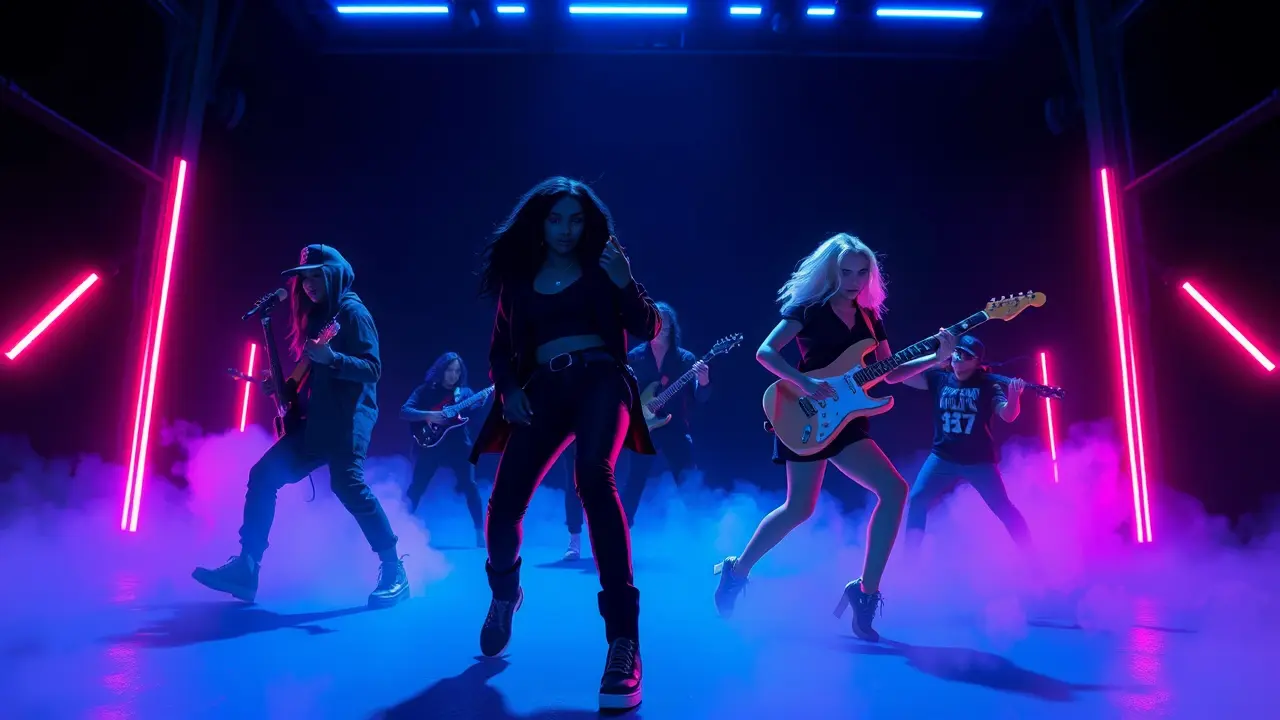Doechii and Alemeda Release 'Beat a Bitch Up' Video
The long-teased collaboration between rap phenom Doechii and pop-rock force Alemeda has finally detonated onto the scene with the incendiary video for 'Beat a Bitch Up,' a track that feels less like a simple song release and more like a cultural moment meticulously crafted for maximum impact. For those of us who live and breathe the album-release-to-award-show-cycle rhythm of the music industry, this isn't just another Friday drop; it's a masterclass in genre fusion, a bold statement of artistic autonomy, and a track that demands to be dissected with the same fervor one might apply to a potential Album of the Year contender.Doechii, the Tampa-born firebrand who has been steadily redefining the boundaries of hip-hop with her unapologetic lyricism and chameleonic flow, finds a surprisingly symbiotic partner in Alemeda, whose own work in the pop-rock sphere often carries a gritty, guitar-driven defiance. The pairing, which might have seemed unconventional on paper, proves to be pure alchemy in execution, creating a sonic landscape where distorted guitar riffs don't just complement a trap beat—they become one with it, creating a visceral, pounding backdrop for the track's confrontational anthem.The video itself, directed with a sharp, cinematic eye, elevates the song from a powerful auditory experience to a full-blown visual manifesto. It’s a gritty, high-energy tableau that draws from a rich history of rebellion in music visuals, from the raw street energy of early Missy Elliott videos to the polished, subversive glamour of Beyoncé's 'Formation.' We see Doechii and Alemeda not as rivals, but as co-conspirators in a world that has often pitted female artists against each other, their shared screen time a powerful rebuttal to that tired narrative. The choreography is aggressive and precise, a physical manifestation of the song's title that is more about metaphorical dominance and self-empowerment than literal violence, channeling the same cathartic energy that made songs like Christina Aguilera's 'Fighter' or Demi Lovato's 'Sorry Not Sorry' into generational empowerment anthems.Lyrically, the track operates on multiple levels. On the surface, it's a brash, in-your-face declaration, but listen closer and you'll find layers of commentary on competition, resilience, and claiming your space in an industry—and a world—that constantly tries to box you in.Doechii’s verses are razor-sharp and densely packed, showcasing her unique ability to flip between melodic cadences and rapid-fire bars, while Alemeda’s chorus provides an anthemic, sing-along hook that is destined to echo through festival grounds and club speakers alike. This release is strategically significant for both artists.For Doechii, it continues her hot streak following major label signing and critical acclaim, solidifying her position not just as a rapper to watch, but as a versatile artist capable of commanding cross-genre collaborations. For Alemeda, it represents a potent foray into a new audience demographic, bridging the gap between guitar-centric alt-rock and the mainstream hip-hop and pop spheres.The 'long-teased' aspect of the rollout was a calculated move, building organic hype through social media snippets and fan speculation, a modern marketing playbook executed to perfection that has resulted in a release that feels both anticipated and explosively fresh. In the broader context of 2024's musical landscape, where genre lines are increasingly blurred and artistic authenticity is the ultimate currency, 'Beat a Bitch Up' stands as a testament to what happens when two distinct, powerful voices decide to converge rather than compete.It’s a record that doesn’t ask for your attention; it commands it, and in doing so, it sets a new, exhilarating benchmark for what a collaboration can and should be. The conversation around Song of the Summer just got a lot more interesting, and for music bloggers and vinyl collectors like myself, it’s these moments—when a track arrives with such force and vision that it reshapes the playlist of the culture itself—that we live for.
It’s quiet here...Start the conversation by leaving the first comment.
© 2025 Outpoll Service LTD. All rights reserved.
